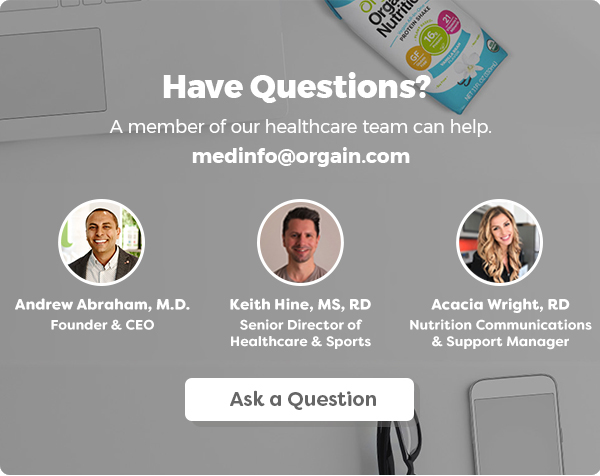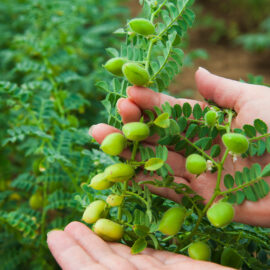
Planet-Friendly Eating & The Role of Healthcare Professionals
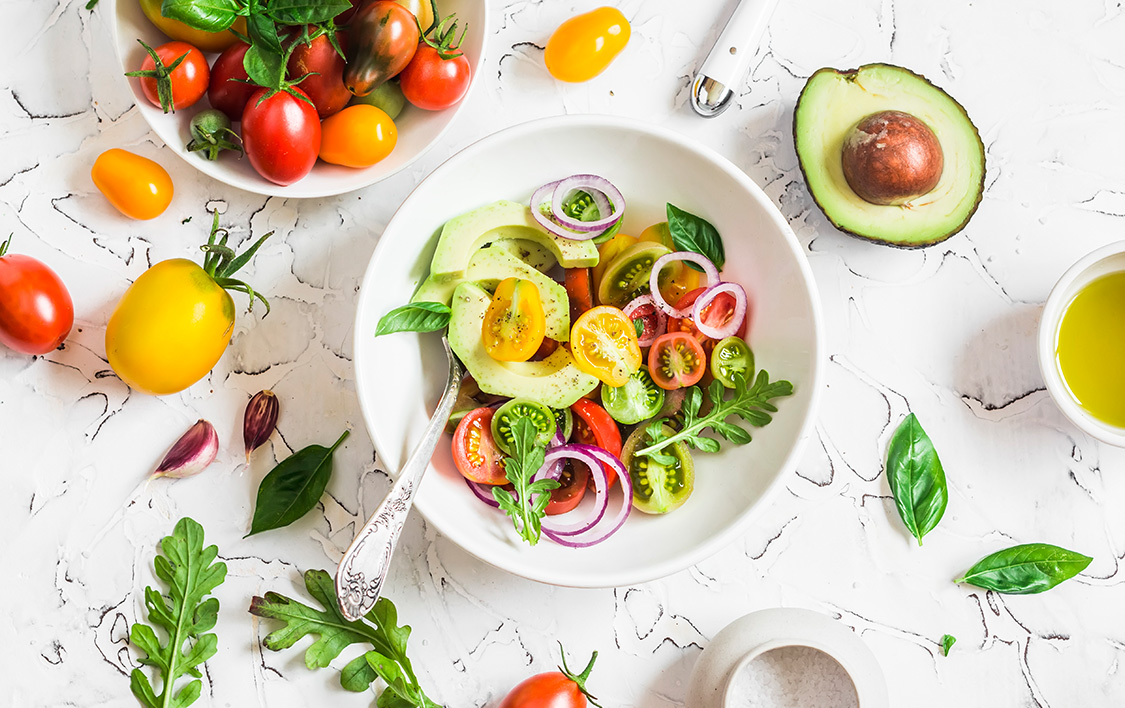
What we eat matters. While this phrase isn’t new, it’s one that has become increasingly relative when it comes to climate change and overall planetary health. Although the climate crisis is impacted by a number of co-occurring multifactorial stress factors, how we choose to eat can greatly impact the health of our planet and ultimately, the health of the human species. The good news is that small changes in what we buy and eat can add up to real and significant environmental benefits, including reducing greenhouse gas emissions, preservation of natural resources, and promoting food sustainability. Plus, eating with the planet in mind typically means eating healthy, nutrient-rich foods and is more efficient, cost-effective and supports sustainable farming practices. We spoke with Orgain’s nutrition advisor, plant-based nutrition advocate and founder of Wholesome LLC, Alison Tierney, MS, RD, CD, CSO, about the impact that food choices have on the health of the environment and the important role healthcare professionals play in guiding their patients toward making climate-friendly food choices.
Plant-Based for Planetary Health
With a variety of diets being promoted to support the planet, such as planet-friendly, plant-based, plant-forward and reducetarian, it’s no surprise that individuals are confused about the best diet to eat that would benefit themselves and the environment. Animal-based foods are more resource intensive and environmentally impactful to produce than plant-based foods, and with this in mind, all of these diets have two commonalities– more plants and less meat.
While good for the planet, the health benefits of consuming a predominantly plant-based diet are exponential. Vegetables, fruits, nuts, seeds, legumes, and grains are packed with phytonutrients that have antioxidant and anti-inflammatory properties, which can lead to reduced oxidative stress and inflammation, thus boosting immunity and providing a first line of defense from both communicable and non-communicable diseases.1 “Consuming plant-based proteins – such as beans, whole grains, and seeds – can greatly reduce required inputs to grow and produce incredibly nourishing, complete proteins required for human health. Choosing plant-based protein options not only nourishes us and reduces the risk of chronic diseases, but it also requires less land, water, and grain to produce and can help us mitigate climate change – one bite at a time,” says Tierney. Fortunately, consumers are taking note: 39% of Americans are actively trying to eat more plant-based foods with 44% of consumers trying to increase their intake of plant-based proteins like beans and nuts.2
Dietary Change Could Mitigate Climate Change
Food, lies at the heart of trying to tackle climate change, reducing water stress, pollution, restoring lands back to forests or grasslands, and protecting the world’s wildlife.3 According to the World Resources Institute, production of animal-based foods accounted for more than three-quarters of global agricultural land use and around two-thirds of agriculture’s production-related greenhouse gas emissions in 2009, while only contributing 37% of total protein consumed by people in that year. Because animals rely on crops for feed, increased demand for animal-based foods widens the food gap relative to increased demand for plant-based foods.
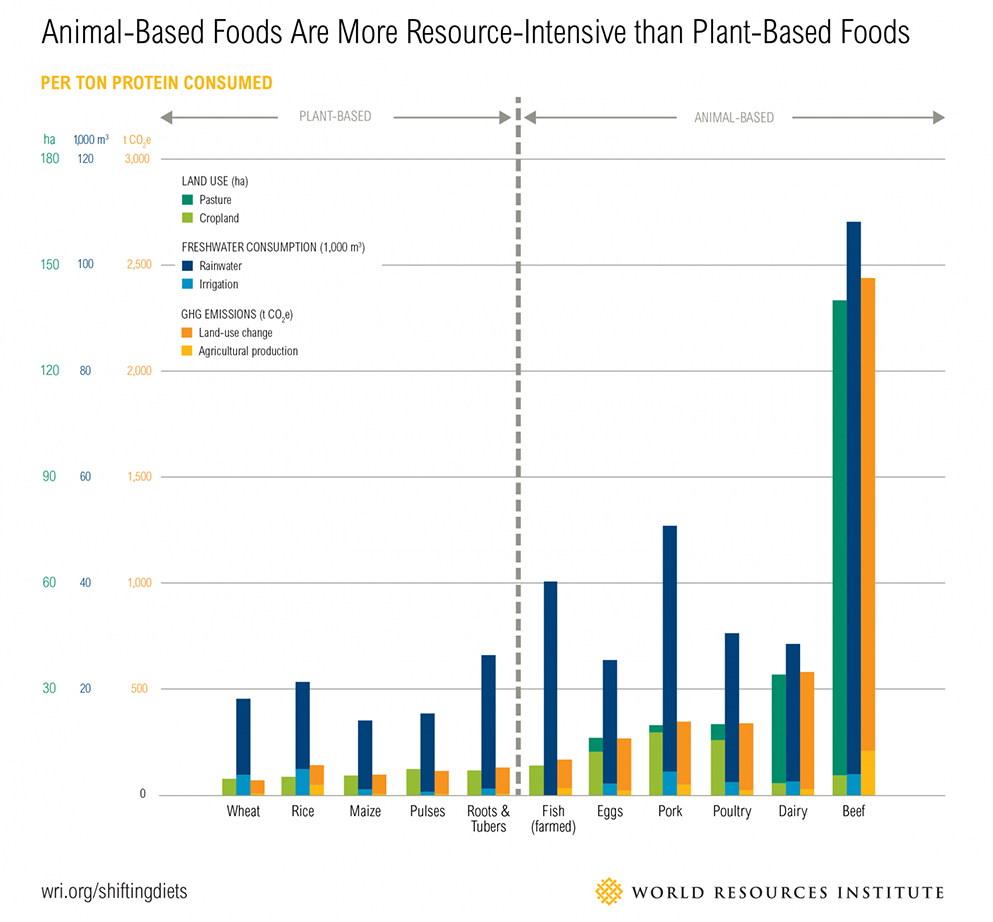
According to Tierney, “It is estimated the Standard American Diet, also known as SAD, takes 2 football fields of land, or, 1.3 acres, to feed 1 person, per year, whereas a predominantly plant-based diet could feed 14 people per year in the same amount of land.” As depicted in the above chart, beef is a global driver of agricultural resource use. To put this into perspective, 12,000 gallons of water is required to produce just 10 pounds of beef, which is the equivalent of enough water to meet the needs of a family of four for one year. If we were to repurpose the amount of grain it takes to produce just ¼ pound of beef, it could feed three people for an entire day.4
Assessments of plant-based compared with meat-based diets are emerging at the intersection of public health, environment, and nutrition.5 To understand the impact food production has on planetary health and climate change, it’s important to review the data. Greenhouse gas (GHG) emissions are a major consequence of our dietary choices. Food accounts for over a quarter (26%) of global GHG emissions. The food production and supply chain accounts for about 30% of total global energy consumption. When evaluating which foods have the most negative impact, the livestock sector is a significant contributor to global human induced GHG emissions. Beef and dairy cattle are the main contributor to the livestock sector’s emissions, representing about 62%. Pigs, poultry, buffalo, and small ruminants have much lower emissions, representing between 7% and 11% of the sector’s emissions.6 In contrast, plant foods require significantly less water and do not contribute to GHG emissions, making them a good choice for the health of consumers and the planet.
If choosing animal-based foods like dairy, organic grass-fed products, such as the Orgain Organic Nutritional Shake and Kids Protein Organic Nutrition Shake are better for the environment as organic crop production uses fewer energy-intensive inputs and the organic farming practice specifically enhances pest and weed resistance without the use of chemicals. Farmers are also able to lower production costs by switching cows to grass and legume-based feed.
The Impact of Climate Change on Food Production & Nutrient Composition
As the climate changes, the quality of our food has shown to be impacted as well. Climate affects a range of biological processes, including the metabolic rate in plants and animals. Changing these processes can change growth rates, and therefore yields, but can also cause organisms to change relative investments in growth versus reproduction, and therefore change the nutrients assimilated, potentially decreasing protein and mineral nutrient concentrations, as well as alter lipid composition. Climate change is being driven by rising concentrations of carbon dioxide (CO2) and other GHG’s in the atmosphere. As plants use CO2 in photosynthesis to form sugar, rising CO2 levels, all things being equal, enhances the process unless limited by water or nitrogen availability, known as ‘CO2 fertilization’. Furthermore, increasing CO2 allows stomata to partially close during gas exchange, reducing water loss through transpiration. These two factors affect the metabolism of plants, and, as with changing temperatures, affects plant growth rates, yields and their nutritional quality.7
“Traditional and modern agriculture practices, unfortunately, are a large contributor to climate change and thus the nutrient composition of our foods,” says Tierney. “Our current agriculture model is degrading much of the world’s soils, leading to less nutritious foods, increasing the requirement for toxic chemicals, decreasing crop yields, and drastically increasing carbon emissions. By focusing on regenerative agriculture, we can sequester carbon to mitigate climate change, replete our soils, grow more nutritious plants, and thus increase the disease-fighting properties of the food we eat.”
How Healthcare Professionals Can Make an Impact
As healthcare professionals make dietary recommendations, it’s important we support the growing interest in eating more plants by guiding individuals with easy and cost-effective ways to do this. According to Tierney, “Today, many individuals are motivated to make these changes to improve their health, but also that of the planet. However, many individuals are unaware of how their food choices can have an incredibly powerful ripple effect on not only their health, but the planetary crisis and even poverty and food insecurity.” She continues to say, “By listening to our patient’s needs and desires, we can further support and motivate our patients to make lasting positive impacts in areas our world currently experiences crisis – simply through the power of food.”
For those who may be hesitant or unsure of where to begin, encourage them to start slow and remind them about the great impact that small changes make. Rather than cutting out or replacing foods, they could focus on which foods to add in. Below you can find some helpful ideas and tips for helping your patients incorporate more plant-foods:
- Ensure plant-foods are part of each meal and snack
- Enjoy whole-grain crackers or vegetables as a snack with hummus, salsa, or guacamole
- Focus on including whole grains with filling fiber like oats, quinoa, barley, bulger, rice, or pasta
- Enjoy animal foods in smaller amounts
- Use animal products such as meat and cheese as a garnish instead of a centerpiece
- Cook a vegetarian meal at least one night a week
- Move to having animal protein at 1 meal each day, then, a serving just a few times each week
- When choosing animal foods, reach for items with less environmental impact such as eggs, chicken, and pork versus beef and lamb
- Choose healthy plant-based fats such as olive oil, olives, nuts, and nut butters, seeds, and avocados
- Make sure vegetables aren’t bland and boring by sharing different preparation methods to amplify flavor, such as grilling, roasting, braising, or stir-frying
- Don’t forget flavor! Dress up dishes with sauces and seasonings such as fresh herbs or dried spices
- If on-the-go, enjoy plant-based protein options such as Orgain Plant-Based Nutritional Shakes
Orgain’s Commitment to Planetary Health
Orgain has an ongoing commitment to the environment, which includes sourcing high-quality planet-friendly ingredients, with many products being USDA certified organic and featuring grass-fed milk protein, sourced from with cows from New Zealand. New Zealand cows are raised under strict animal welfare regulations by the New Zealand government that are equivalent, if not more stringent, than regulations set forth by the National Organic Program administered by the FDA.
In addition, Orgain’s Green Initiative, launched in 2020, is an effort which led the reduction in product packaging to reduce plastic use, while providing the same amount of product. For more information on Orgain’s Green Initiative, visit https://orgain.com/pages/our-story. Orgain also provides ongoing educational opportunities that includes topics related to environmental health and nutrition through its various communication channels including free professional education webinars such as Eating Like the World Depends On It (Because It Does…), presented by Dr. David Katz, and episodes on The Good Clean Nutrition Podcast.
![]()
1 Guest, N. S., & Lynch, H. Plant-based diets and athletic performance. Retrieved from: https://www.aspetar.com/journal/viewarticle.aspx?id=519#.Ya9_cvnMI2x.
2 Nielsen. (2018) Plant-based food options are sprouting growth for retailers. Retrieved from: https://nielseniq.com/global/en/insights/analysis/2018/plant-based-food-options-are-sprouting-growth-for-retailers/
3 Ritchie, H., Roser, M. (2020) – “Environmental impacts of food production”. Published online at OurWorldInData.org. Retrieved from: https://ourworldindata.org/environmental-impacts-of-food
4 Dice, K. (2019). Plant-Based Nutrition Quick Start Guide. Boynton Beach, Florida; The Plantrician Project
5 Soret, S., Mejia, A., Batech, M., Jaceldo-Siegl, K., Harwatt, H., & Sabaté, J. (2014). Climate change mitigation and health effects of varied dietary patterns in real-life settings throughout North America. The American journal of clinical nutrition, 100 Suppl 1, 490S–5S. https://doi.org/10.3945/ajcn.113.071589
6 Food and Agriculture Organization, FAO. Global Livestock Environmental Assessment Model (GLEAM). Retrieved from: https://www.fao.org/gleam/results/en/
7 Mbow, C., et al. Chapter 5 : Food security —Special Report on Climate Change and Land – IPCC. Retrieved from: https://www.ipcc.ch/srccl/chapter/chapter-5/

The Good Clean Nutrition Podcast, Season 2 – NEW Episodes
Easily accessible on The Good Clean Nutrition Podcast webpage and newly added to the Orgain Healthcare app, tune into the latest two must-listen episodes – including the first of Season 2 featuring Dr. David Katz. Also, be sure to subscribe now on Apple Podcasts, Spotify or anywhere you listen to podcasts, so you never miss a new episode!
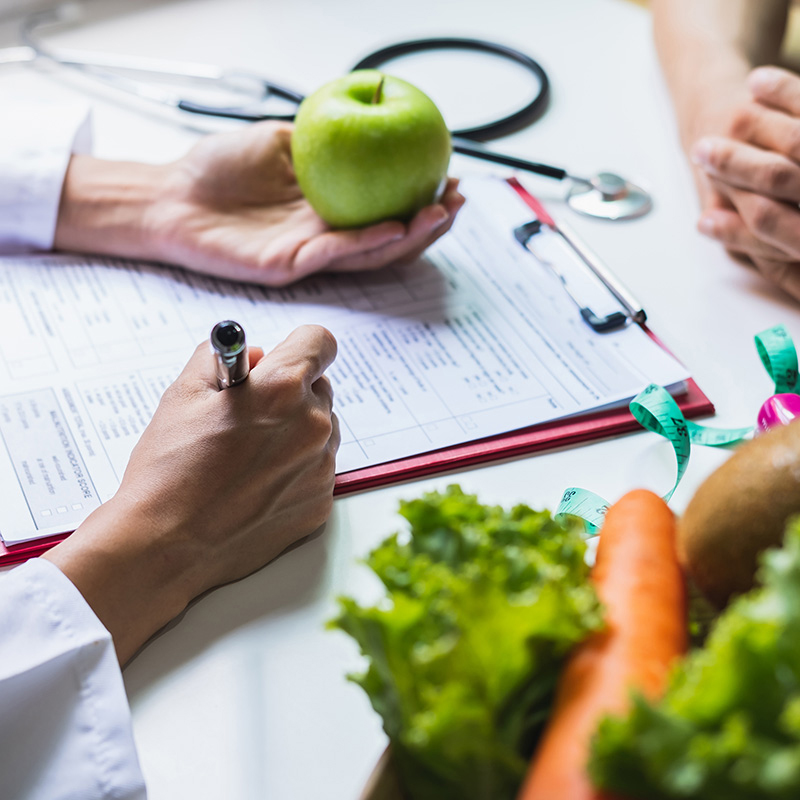
Episode 9: The Crusade to Make Diet a Vital Sign with David L. Katz, MD, MPH, FACPM, FACP, FACLM
Listen in as Dr. Katz shares his thoughts about personalized nutrition, the connection between diet and environmental health, and how his latest venture, the evidence-based digital dietary assessment tool, Diet ID, offers a solution toward measuring and managing diets to help make diet a vital sign.
Listen Now >

Episode 8: The Connection Between Diet, Sleep & Health with Marie-Pierre St-Onge, PhD, FAHA, CCSH
Tune in to learn the key discoveries on the connection between nutrition and sleep, including the impact of nutrient deficiencies on sleep quality and how sleep deprivation can influence food cravings.
Get the Recipe >

2022 Live Webinars
Tune in to this informative webinar and earn 1 CPEU for RDNs and NDTRs, accessible on your computer, phone/tablet or through the Orgain Healthcare app! Join Dr. Jacob T. Mey on January as he shares about the latest evidence suggesting that nutritional calorie restriction can promote longevity and addresses related concerns on muscle mass, physical function and low body weight.

Jacob T. Mey, Ph.D., R.D.
Approved for 1.0 CPEU for RDNs and DTRs
January 27, 2022 at 2 PM EDT
REGISTER HERE

Orgain’s First National Commercial
We are excited to share Orgain’s first-ever national television commercial. Watch the 60-second spot on YouTube!
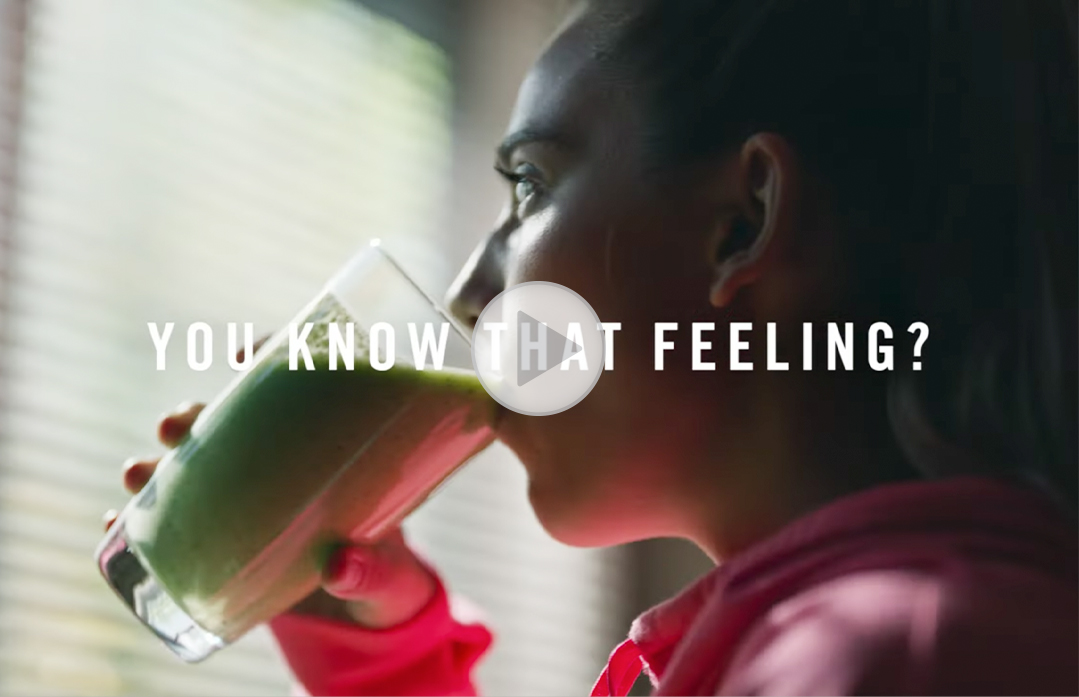
See below for other television stations that you can expect to see this commercial, including the shorter versions:
- Cable/Network TV: Bravo, Food Network, HGTV, TLC, E!, NFL, ESPN, Fox Sports, Discovery Channel, FX, Magnolia Network, and Lifetime
- Streaming TV: Peacock, VDX and Hulu
